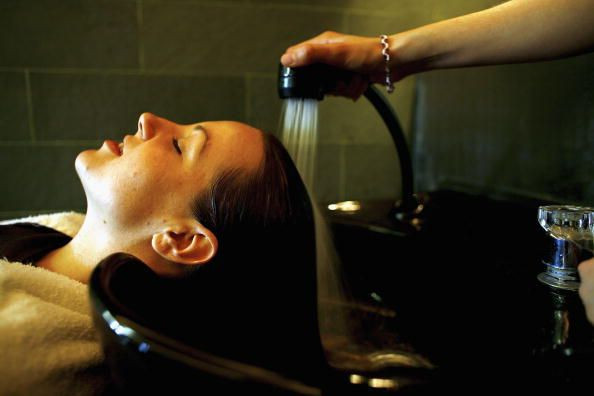Want To Live Through A Nuclear Armageddon? Skip The Hair Conditioner

The growing tension and threats between the United States and North Korea have suddenly thrown the U.S. territory, Guam into the limelight.
Even though North Korean leader Kim Jong Un outlined his plans to rain "an enveloping fire" around the U.S. territory of Guam and then opted not to fire missiles at this point of time, Guam’s office of Civil Defence has still carefully laid out a new set of guidelines on Aug. 11, that teach how to take cover before an explosion along with facts like avoiding hair conditioner after a nuclear explosion.
According to the new guidelines, in case of exposure to radioactive material, don’t reach for hair conditioner as it could bind radioactive material to your hair.
The reason why conditioner is so hazardous is because of the physical characteristics of human hair.
When a nuclear warhead detonates, it burns up everything that it touches and the vaporized material is flung towards the sky.
Rock, living beings, things, and buildings having been turned to dust get mixed up with radioactive by-products of uranium or plutonium atoms splitting, post the explosion.
The nuclear fall out which is the residual radioactive material propelled into the upper atmosphere following a nuclear blast leaks a stream of dangerous radiation.
Some of these particles are so small that they enter the crevices that are open on strands of hair. When you closely view a strand of hair under a microscope, you can see proteins resembling overlapping scales.
"It can come apart during the day like a pine cone. Radiation contamination particles can get between those scales," Andrew Karam, a radiation safety expert said.
He further added that if one showers carefully with soap and shampoo, the radioactive dust should wash right away without any difficulty.
However, hair conditioner is not safe to use because while shampoo is meant to be washed out of the hair, conditioner is meant to stay in the hair for nourishment which contains particular compounds called cationic surfactants and polymers.
"It's a minor thing to give up using conditioner for a couple of days. Just wash with shampoo until the radioactivity is washed out," Karam said.
Karam has served with the U.S. Navy as a chemistry safety control officer aboard the attack submarine USS Plunger in the 1980s.
"I got a lot of skin contamination on the sub. Most of the time, I could clean it up with soap and water in five to 10 minutes. We assumed two to three washes would take care of it," he said. "Radioactivity is like changing a diaper. You don't want it on you, but if you do get it on you, just wash it off and go on with your day."
Overall, despite all preventions, exposure to radioactivity is quite dangerous and deadly. The amount of radiation you’re exposed to depends on a lot of factors, including how far one is from the blast site or whether you are in the path of the trail of radioactive ash and dust from the explosion.
Further guidelines are also posted on the U.S. Department of Homeland Security's website, Ready.gov.
© Copyright IBTimes 2024. All rights reserved.






















